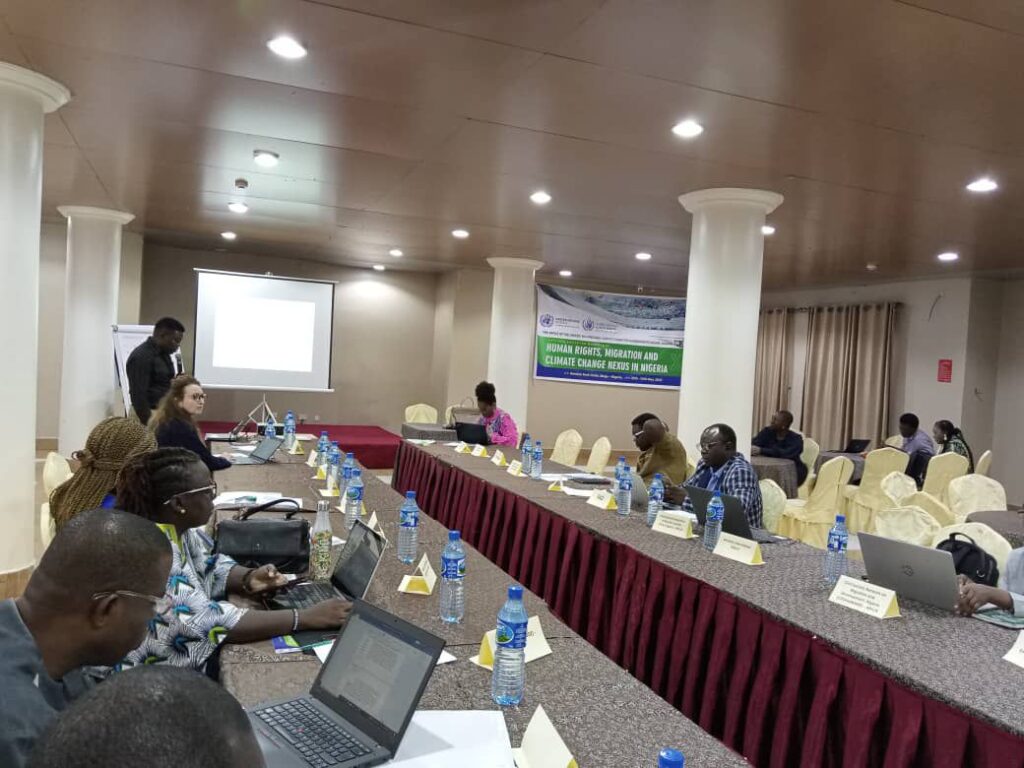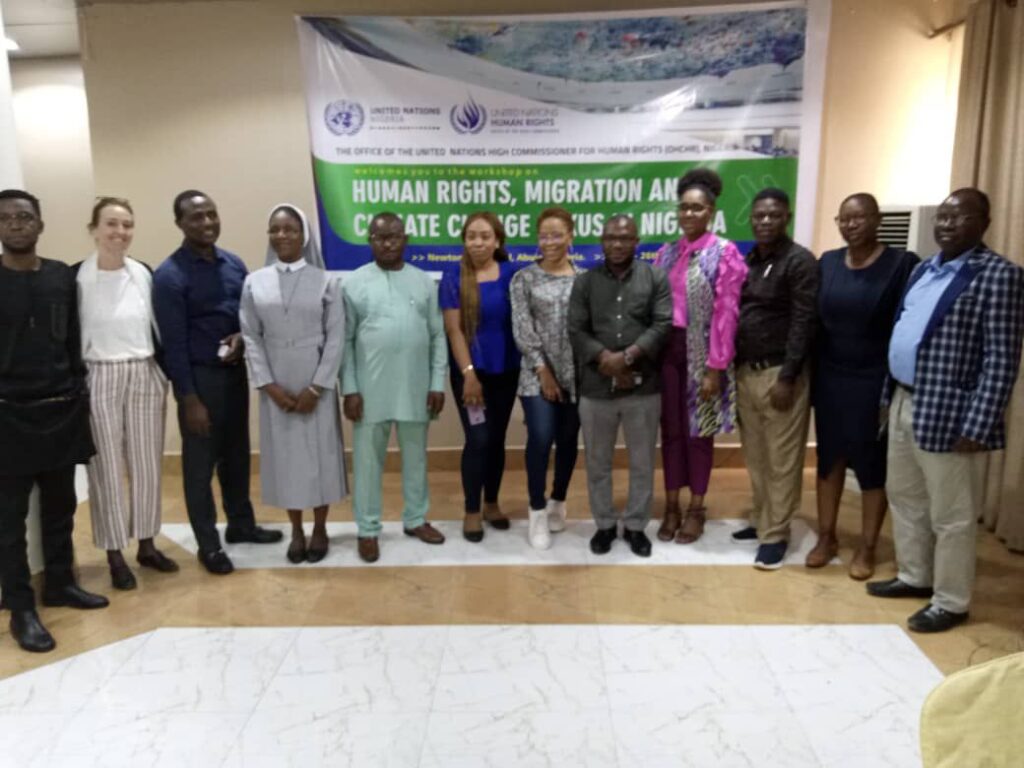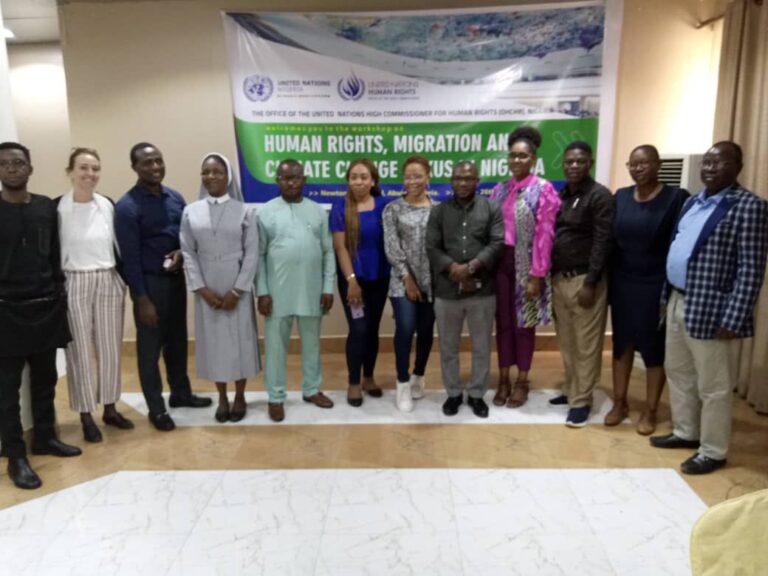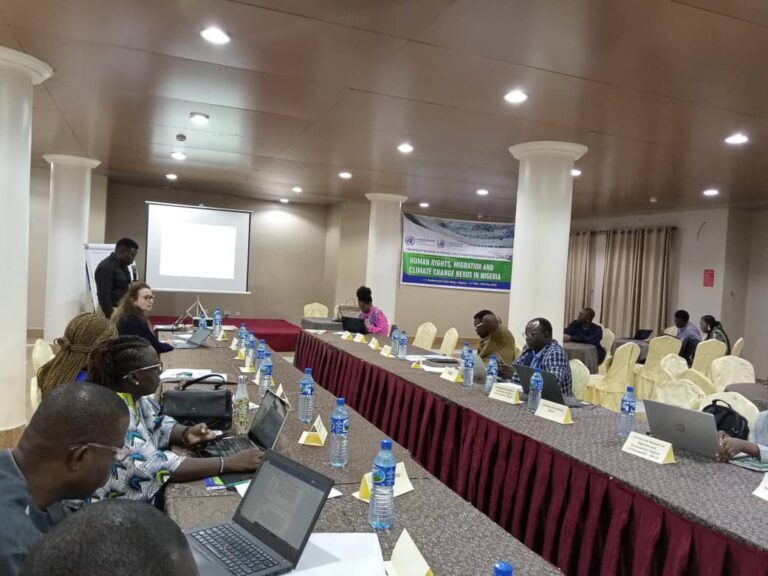The programme was Organised by the Office of the United Nations High Commissioner on Human Rights between 25th – 26th of May 2022.
Participants at the event were made up of representatives from the following organisation:
● Local and International Non-governmental entities.
● Agencies of the Federal Government of Nigeria, especially from the National Human Rights Commission, Federal
Ministry of Environment; and
● United Nations Organisations (FAO, ILO, IOM).
● Representatives of Conflict Resolution and Migration Awareness Initiative (CRAMAI).
It is important to state here that the Scope of activities and operations of the Office of the United Nations High Commissioner on Human Rights in West Africa, covers Mauritania, Niger, and Nigeria, with their operational office in Mauritania.
The objectives of the Workshop:
● Is to raise awareness and deepen knowledge on Climate Change, Migration, and Human Rights nexus.
● Highlight the impact of Climate Change on the human rights of individuals and communities and specifically:




It is very important to note that CRAMAI presented a lecture during this Workshop. And CRAMAI’s presentation which was titled- “Climate Financing and Improving Advocacy and Dialogue Amongst Stakeholders, Local and Indigenous People and Policy Makers”, was delivered by a very erudite member of CRAMAI’s Board of Trustees – Dr. OPB Opia. He is also a distinguished Senior Lecturer at Delta State University, Anwai – Asaba, Delta State, Nigeria.
During the lecture, he addressed the Impacts of Climate Change on Migrants; and in order to ensure that the paper had the desired impact on participants, he focused less on themes that are contained in papers which have already been delivered by other Resource Persons at the event.
Therefore, he interrogated the following very fundamental issues:
First, he dealt with conflicts between Fulani Herdsmen and Farmers. He drew attention to the fact that the plan by the Federal Government to re-establish what it called Gazette Grazing Routes is completely out of tune with practical realities and modernity.
Second, Dr. OPB Opia reiterated CRAMAI’s conviction that it was unrealistic to argue that time was when the Federal Government had mapped out a certain land route running from the North to the Southern part of Nigeria through which Herdsmen will travel through while grazing their herds with the impression that they won’t vie into legitimate private properties of other Nigerians.
Third, he posited that the current practice where Herdsmen graze their Cattle on just any bushy piece of land clearly defined a crime of criminal trespassing and encroachment on private property, which for that awful offence, they can be sued by land owners.
Other speakers at the two-day event presented papers on Nigeria Climate Change Act 2021 which stated the following:
First, Civil Society Organisations criticised the act or a situation where a given Minister is also on the Board of an Agency in the Ministry he is supervising.
Second, more civil society representations should be included.
Third, the Domiciliation of the Act should be encouraged.
Fourth, Representatives of the Federal Ministry of Justice acknowledged the lapses and promised improvements.
Finally, concerning the Report Presentation at COP 27 in Egypt, the organizers informed participants that the report of the workshop will be presented at the 2022 Climate Change Conference (COP 27) holding in Egypt in November 2022.
Conflict Resolution and Migration Awareness Initiative (CRAMAI) is a non governmental organisation which aims to promote regular migration the world over by working in synergy with relevant stakeholders in engendering peace and harmony, safe and beneficial migration regimes in today’s dynamic society.
Road 1 HSE 1, Project 104, Hydraform Estate, Pasali, Kuje-Abuja.